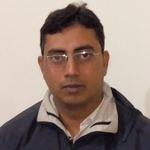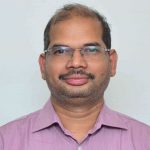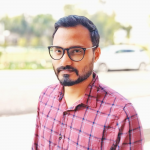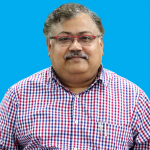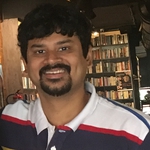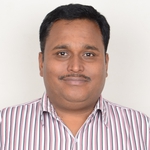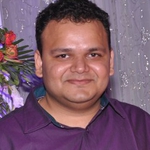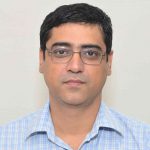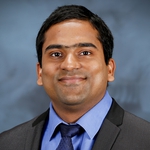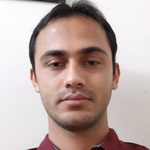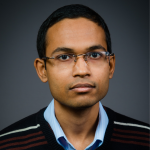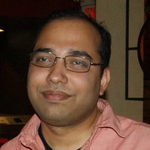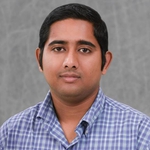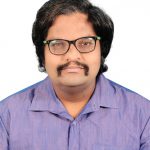M. Tech (VLSI) for Industry ProfessionalS
We have announced the following awards for each graduating batch of MTech VLSI students.
* The student with the highest CGPA will receive a memento, certificate and a cash prize of Rs 10,000. The student must have a CPGA of 9 or above to qualify for this award.
* A panel of experts will declare the “Best M.Tech Thesis Award” among the students of MTech VLSI program. The student will receive a memento, certificate and a cash prize of Rs 10,000.
The eligibility and other criteria will be as per IITR rules.
Benefits of M. Tech (VLSI) for Industry Professionals
Attend classes remotely
Live interaction/classes with faculty
An industry friendly IP policy
Enrich knowledge and skills
Interact with subject experts
Prepare for a technical leadership role
Complete a rigorous M.Tech program at a pace allowed by job commitments
About M. Tech (VLSI) for Industry Professionals
- The structure is developed to provide necessary skills for early/mid career professionals
- A slow paced Post Graduate Program to maintain balance between work and academics
- Attend classes remotely from anywhere
- Contact Program with faculty in each semester in Greater Noida Campus of IIT Roorkee
- Duration: 3 Years with flexible number of credits per semester (2 year for course work and 1 year for thesis)
- Total Program fee: INR 6.5 Lakhs
- Fee will be accepted per semester based on the number of courses/credits registered
- A degree equivalent to that of the full-time students would be awarded after a candidate successfully earns required credits
- Provision for integrating dissertation (thesis) with industry work
Our Faculty
Prof. Anand Bulusu
CMOS Digital Circuits, Timing models and design of near threshold voltage circuits, VLSI Devices, Novel device/circuit co-design methodologies, Mixed-Signal Design, Low Voltage CMOS Circuit Design and Modeling
Prof. Bishnu Prasad Das
VLSI Circuit and System Level Designs, Cyber Physical System Designs and FPGA based Designs, Standard Cell library Design, Resilient circuit design, Hardware security, Variability Measurement
Prof. Avirup Dasgupta
Numerical and compact models for emerging semiconductor technologies, modeling of psychopathology, room temperature quantum computing and genome sequencing
Prof. Sudeb Dasgupta
Ultra Low Power, Adiabatic Logic for Portable Applications
Low Power Application, Subthreshold Logic Design
Radiation Effects on ICs, Design and Development of 6T FinFET Based Rad Hard SRAM Cell
Novel Semiconductor Devices, FinFETs, PDSOI, FDSOI
Nanoelectronics, Semiconductor Device Modelling
Prof. Arnab Datta
Micro (Nano) Electronic Devices: Electrical Characterization and Modeling of Semiconductor Devices, Non-Volatile Memories, Advanced MOSFET Reliability, MOS Device Fabrication, MEMS: Electro-mechanical Switches, Device Failure Mechanism, Photonics: Semiconductor Photonic Devices, Novel Photonic Devices
Prof. Brajesh Kumar Kaushik
Nanotechnology Design, Nanoscale Interconnects and Devices; CNT Based Applications; Organic Electronics; Spintronics
Prof. Brijesh Kumar
Optoelectronics, Quantum Dot-Light Emitting Devices, High efficiency solar cells, Microelectronic Fabrication, Minimizing RF sputtered Al's roughness, Moisture resistant alternative to sapphire, Organic Semiconductors, Fabrication and modeling of organic LEDs and Solar cells
Prof. Sanjeev Manhas
Nanowire MOSFET Modeling and Circuit Design, 3D NAND, FeFET and nanoscale DRAM, Neuromorphic and In-Memory Computing, MEMS Energy Harvesting and Sensors, CMOS Reliability
Prof. Sparsh Mittal
Architectures for machine learning, neural network accelerators, computer architecture, high performance computing, VLSI
Prof. Vishvendra Singh Poonia
Quantum effects in biological systems, avian magneto reception, role of coherence in photosynthetic apparatus, Quantum computing, spin based systems, Nanoelectronics, emulation of quantum biological systems, Organic spintronics, spin transport in biomolecules
Prof. Tanmoy Pramanik
Magnetic Random Access Memory, Magnetic Thin Films and Materials for Electronic Device Applications, Non-volatile Memory, Device Physics and Reliability, Reliability Characterization and Modeling of Emerging Non-volatile Memories
Prof. Sourajeet Roy
Numerical modeling and simulation of high-speed devices/circuits, computational algorithms for uncertainty quantification,stochastic modeling & reliability analysis, Carbon nanotubes, modeling & simulation of CNT for electronic packaging applications, Modeling of high-speed interconnects, CAD for signal & power integrity analysis, Microwave/RF circuit simulation, numerical algorithms for steady-state, transient, and frequency-domain simulation
Prof. Biplab Sarkar
Ultra-wide bandgap VLSI Devices, Power Schottky diodes, HEMTs, LEDs, Photodetectors
Prof. Saravana Kumar M
Analog and Mixed Signal Integrated Circuit Design, Data converter design for Instrumentation applications and Wireless Transceivers, RF CMOS IC design
Semester-wise Course Structure
Core Subjects
- Digital VLSI Circuit Design
- Analog VLSI Circuit Design
- MOS Device Physics
- Digital System Design
- Mixed Signal Circuit Design
Elective Subjects
- VLSI Physical Design
- Semiconductor Device Modeling
- Device & Circuit Interaction
- CAD for VLSI
- VLSI Technology
- VLSI Digital Signal Processing
- RF CMOS Circuit Design
- Low Voltage CMOS Circuit
- VLSI Testing and Testability
- MEMS and NEMS
- Embedded System Design
- Hardware Architecture for Deep-Learning
- Performance & Reliability of VLSI Circuits
- Statistical Machine Learning for Variation-Aware Electronic Device and Circuit Simulation

